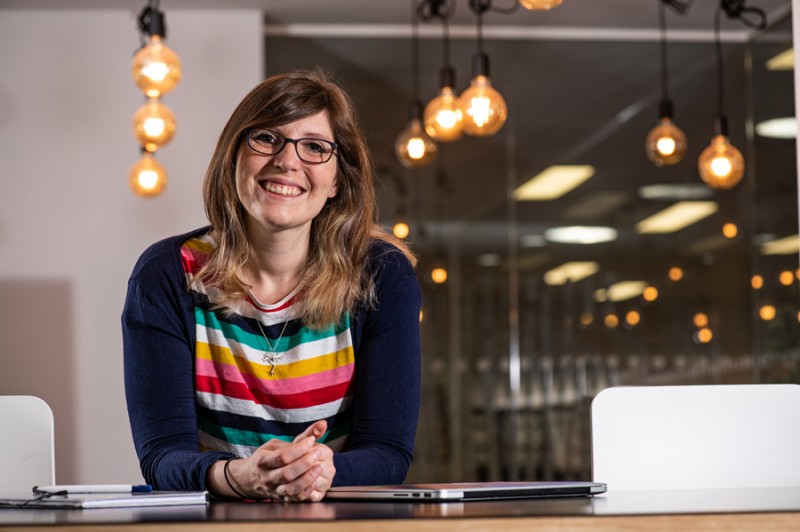Rachel Moseley is a Principal Academic in Psychology here at BU. Her research centres on Autism Spectrum Conditions (ASC) and difficulties faced by autistic people in adulthood, including suicide, self-injury and mental ill-health. She also studies issues around late-diagnosis (especially of autistic women) and ageing, a neglected area in autism research.
In 2021 she worked with the Government’s Open Innovation (OI) Team which liaises with academics and experts to generate ideas for policy, and to provide policy analysis.
Sometimes you have to set the record straight
As part of an Open Innovation Team project, I was invited to join a panel debate about the link between ASC and radicalisation. I only knew about the event because Sarah in the BU Policy & Public Affairs Team told me about it – she knew I’d be interested and keen to have a say!
As well as other experts on autism, there were representatives from the Home Office’s Prevent (anti-radicalisation) programme, social workers, clinicians and so on. The participants were keen to get to the bottom of what they perceived to be a link between autism and radicalisation – their idea being that people with autism are more likely to become involved in terrorist activities. However, there is no credible evidence to suggest that autistic people are more likely than non-autistic people to hold sympathetic views on violent protest or terrorism. There is even some evidence that terror networks are actually more reluctant to recruit people with any kind of mental health problem or neurodivergence, perhaps due to social stigma.
So, my first job on the panel was to speak up and set the record straight! While there is no evidence to suggest that autistic people are more likely to be radicalised, there is evidence to suggest that they are disproportionately likely to be referred, inappropriately and unfairly, to prevention programmes. This is likely because those around them lack a nuanced understanding of autism, so that certain behaviours and interests can be easily misconstrued. Furthermore, while the evidence base for a link between autism and terrorism is exceedingly weak, numerous studies have shown us that autism stigma puts autistic people at risk of mental ill-health and suicidality.
I wanted the OI Team to be aware of this so their work would be better informed. Knowing the harm caused by such misperceptions and the stigma they generate, I also felt it was especially important to steer the discussion in the right direction. The participants were really receptive, and the discussion was able to continue on a more informed basis.
Ask for feedback on your influence
After the event, on Sarah’s recommendation, I contacted the Open Innovation Team to find out whether my comments and points had been included in the final report. They confirmed this was the case and told me they’d also been included in a presentation to the chairs of the Prevent Channel. This was incredibly valuable information for my REF submission, so it was really worth asking! Policymakers might not always be able to tell you for confidentiality reasons – or they might not be able to separate your influence from others’ – but there’s no harm in requesting a little feedback! I wouldn’t have had the confidence to do this without Sarah’s suggestion and her support in drafting this email.
What happened next?
As well as influencing policy directly, the Policy & Public Affairs Team have also helped me to influence indirectly, using the media. Shortly after my participation in the panel, Sarah saw a Guardian article which assumed a link between ASC and radicalisation and sent it to me – this prompted me to write a piece for The Conversation in response, to argue against it. Getting your views in the media is often as important as influencing policymakers directly because they’re very responsive to what they read in the press. The article’s since been cited in an academic journal and has been read by almost 7,000 people!
Taking part in the event also helped me to cement a reputation with Government as expert in this area, and my name’s been passed on to civil servants in the Department for Education, Home Office and the Department for Health and Social Care. I’d be very happy to help with their future work in this area, so Sarah and I are both keeping an eye open for opportunities.
Up next, I’m exploring risk factors for suicide in autistic people, and investigating what strategies might be most helpful for suicide prevention. I’m also working with Professor Julie Turner-Cobb to explore the experiences of autistic people through menopause, another understudied area. Our work in this sphere has led to us advising on the ongoing revisions to NICE guidelines and my involvement in developing training videos for GPs.
I’m confident there will be more opportunities to talk to Government about these issues with the goals of ensuring people with ASC are better understood and catered for by public services and experience less stigma by society in general. In collaboration with other researchers, I recently designed policy recommendations for suicide prevention based on our collective research. We believe meeting these goals will not only help prevent suicide among autistic people but improve their wellbeing and inclusion in society too.
 Dr Rachel Moseley
Dr Rachel Moseley